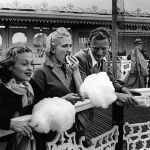Marina Lewycka’s The Good, the Bad and the Little Bit Stupid is completely bonkers
Faced with Marina Lewycka’s new novel, it’s tempting to say that The Good, the Bad and the Little Bit Stupid is also a pretty serviceable description of its contents. Yet, in the end, that feels far too neat a formulation for a book that goes well beyond the uneven into the realms of the completely unhinged. For one thing, its elements — among them suburban social comedy, the horrors of Brexit, money laundering, geriatric sex and the international trade in human organs — seem not so much disparate as random. For another, they’re never remotely blended, but simply allowed to co-exist. The novel begins in Sheffield, and in territory familiar



